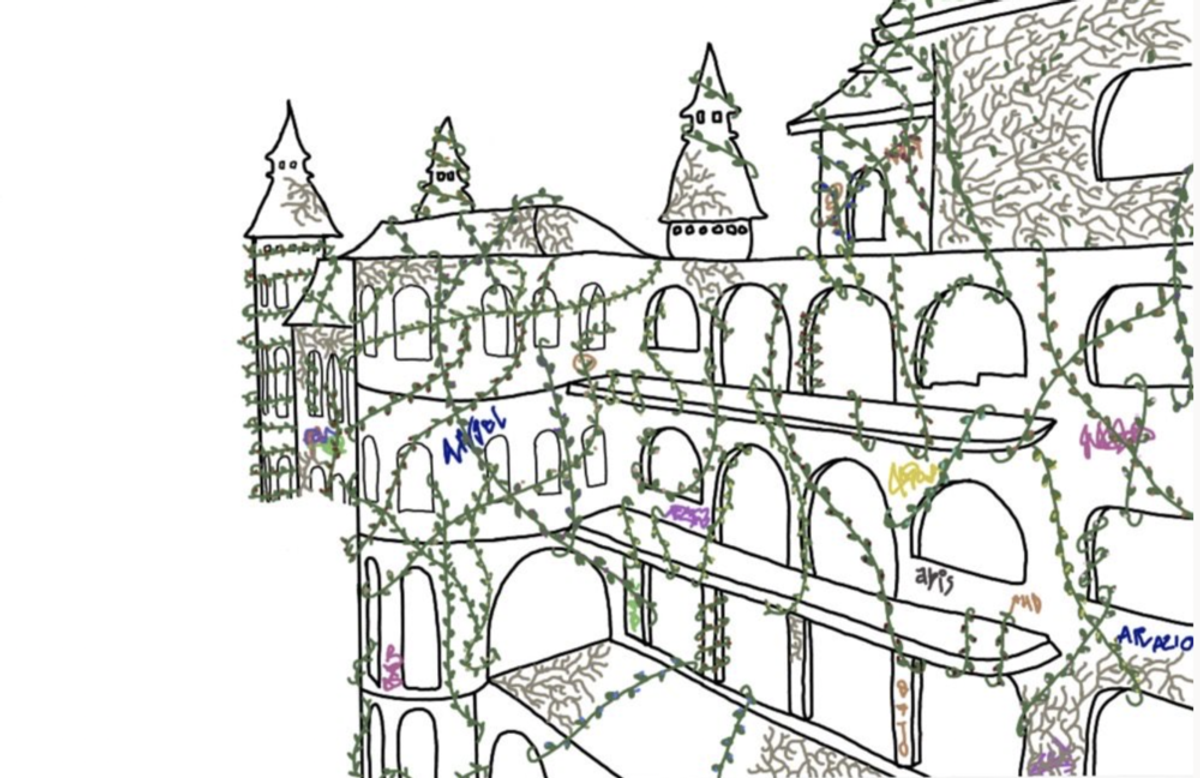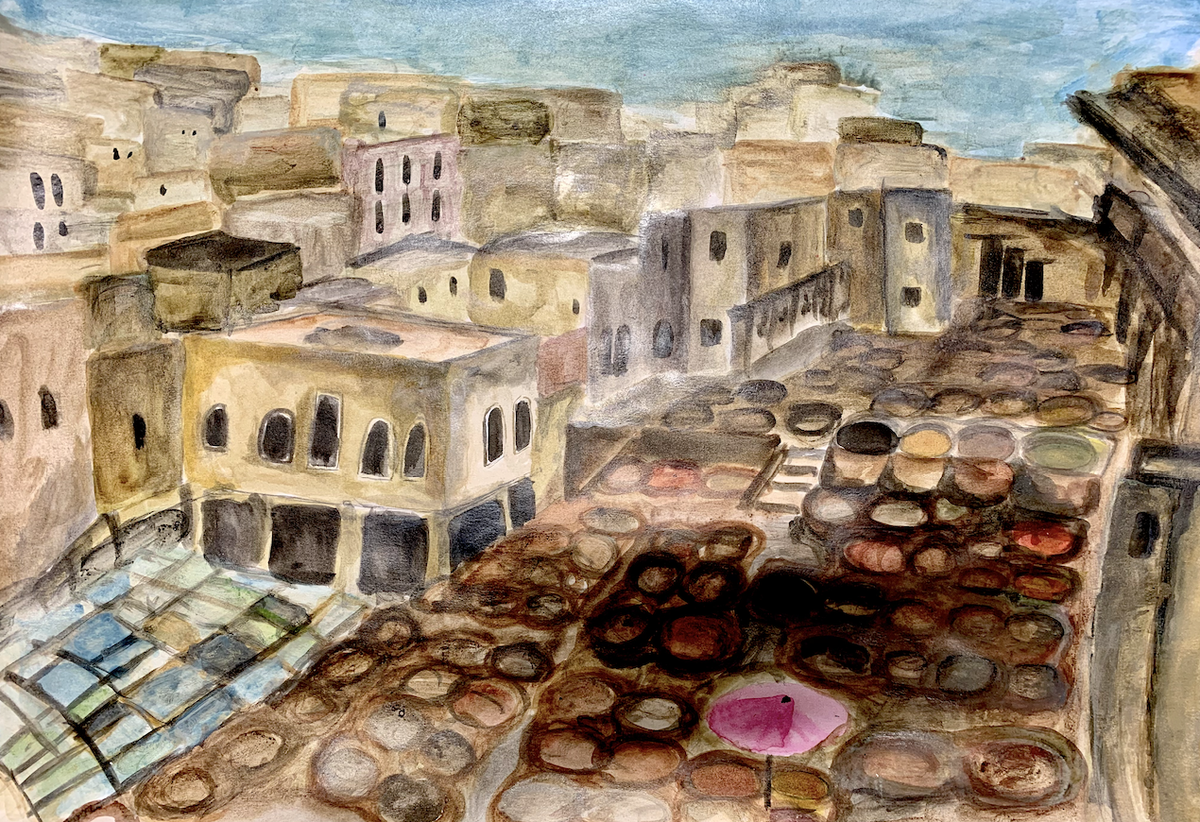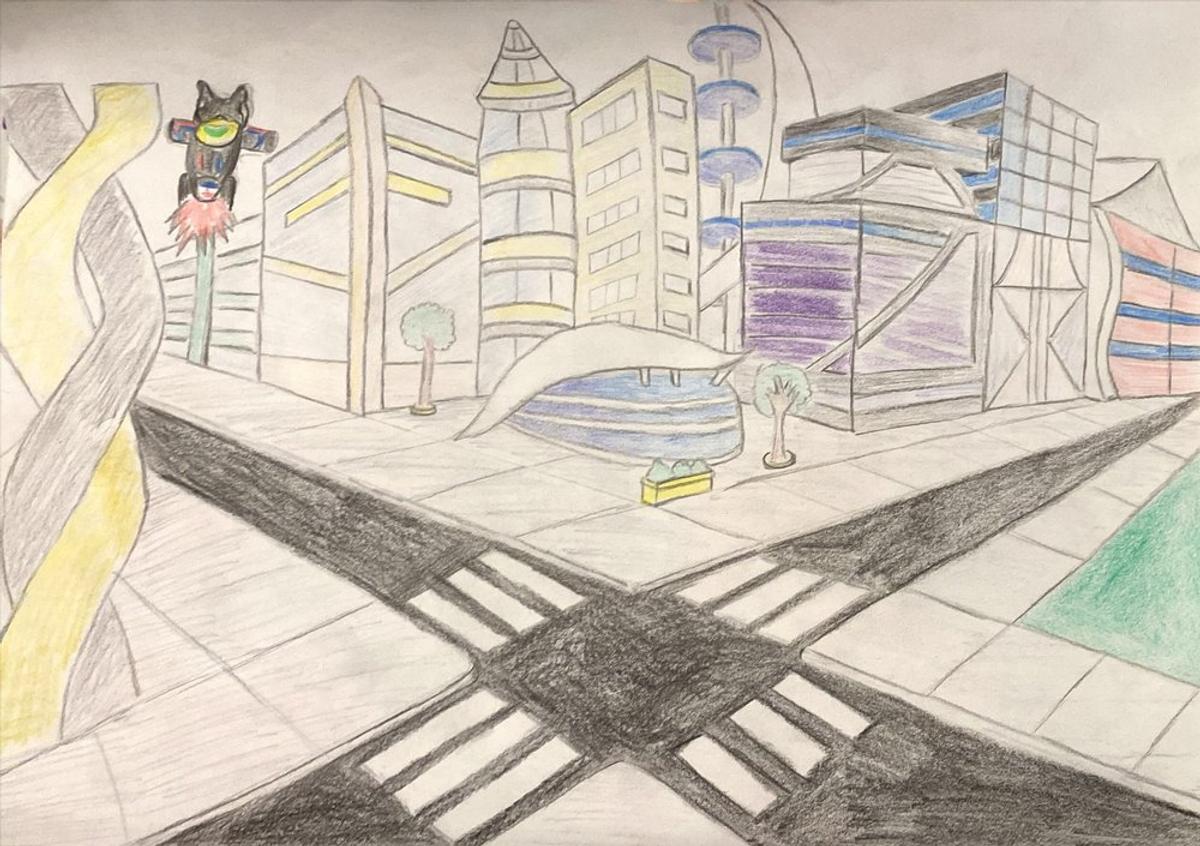Educate Yourself!
Artwork by Ada Theocharides, Year 10, The Ridgeway Campus

Educate Yourself!
Artwork by Ada Theocharides, Year 10, The Ridgeway Campus
By Oscar He, Year 8, The Ridgeway Campus
Recently there has been a lot of controversy around the effectiveness of vaccines and the consequences that come with them. Do they work? How are they made? Why should we get vaccinated? These are just some of the many questions being asked. In this article, we’ll get things straight and review their many benefits.
The first vaccine was invented and administered by a man named Edward Jenner, who was a country doctor in Gloucestershire, England. He is considered by many to be the founder of immunology. In 1796, he inoculated a young boy with cowpox (vaccinia virus) and proved to the world that artificial immunity was possible after he noticed that milkmaids that succumbed to cowpox were not affected by smallpox. Two years later, the first smallpox vaccine was developed and thus helped eradicate the virus throughout the years.
In the centuries that followed, many doctors and scientists, succeeded in creating numerous vaccines that many people still use today. Some of these include tetanus, HPV, and influenza, which some people still get yearly (depending on which country you live in). The past few decades have seen a dramatic increase in knowledge in the immunology industry, and more information is being discovered each year.


Human vaccinology is very different from other medical practices because it protects the health of the public rather than specific individuals. Vaccines usually contain inactive parts of an organism (antigen) and help our bodies learn to create a distinct antibody, so if we ever catch this disease, we already know how to fight it. An antigen is a fragment of the virus that the receptor in our immune cells can bind to and then recognise and destroy viruses with that particular antigen.
When the majority of people in a community have been properly immunised, (even though the effects of the illness may not have any underlying effects on them) it can protect other people who may have severe health conditions or serious allergies who are unable to get vaccinated.
COVID-19 vaccines have been doubted by many, and this has a lot to do with some of the extremely rare side effects they have caused. Inflammation of the heart and blood clots are some of the very rare aftereffects. Only about 4 - 10 people per million experience these things so you shouldn't worry. Most people might have a headache or a fever, and maybe nothing at all. Even though most Australians are already vaccinated, some have still yet to get their vaccination.
People die every week because of this deadly virus, so if you are able, get the jab.


By Sarah Fang, Year 10, Plenty Campus
Recently we’ve been utilising bibliotherapy in our library sessions, which are led by Ms White. It involves using a reflective approach where students read books to relieve stress and help combat current mental conflicts. During library periods, students can write down any concerns they may have and their innermost feelings, in a safe and private space. The notebooks given to students allow them to take a break from the stress of assignments, work, and anything else bothering them.
Bibliotherapy offers many mental and emotional benefits. Studies have found that through bibliotherapy, reading for pleasure can reduce anxiety, improve your self-esteem, empathy, and emotional intelligence. Students are very often in a fixed environment where they are constantly surrounded by assignments, homework, and personal issues. In such a situation, it’s very common for someone’s mental health to quickly deteriorate.
Bibliotherapy allows students to recognise their own thoughts and emotions in the books they are reading and can allow them to feel less alone. All of the aforementioned promotes many positive learning and mental benefits for struggling students.


From personal experience, I have found it to be quite an enjoyable experience. Though I do read outside of school quite often, I don’t usually find myself reflecting over what I’ve read or thinking deeper into the story. Having a lesson every fortnight where I’m able to be absorbed in a good book, and not have to think about anything school-related, has taken a lot of stress off my shoulders.
Although bibliotherapy is still quite new to me, I’ve already noticed a change in my attitude towards my school and work life.
By Sienna Fazzino, Feny Patel, Alannah Wanless, Year 12, Plenty Campus
It is valuable to take the time to listen and talk to one another, and recognise things from each other’s perspectives. Empathy can be described as the skill to understand another and the ability to create space for someone to reveal their authentic self whilst reserving judgment. Recently, Ivanhoe Grammar School took part in Empathy Week, which is a global program that aims to develop the skills of empathy and leadership in students by encouraging them to take part in active conversations and become open-minded individuals.
Empathy Week arose from the need to engage young people, empower them and upskill them to become more socially and emotionally intelligent. The initiative aims to achieve an ‘Empathy Generation’ as a part of their mission, believing empathy has the potential to increase creativity and academic achievement.
From the 21 to 25 February, educational videos, activities and quotes were posted in year level Microsoft teams from the IDEALS leaders, with the purpose of engaging students and informing them about empathy. We also promoted a ‘no phone day’ in order to encourage genuine and empathic conversations with your peers and to become more aware of your surroundings.
We hope that students gained a lot from this week and we are keen to see the program advance at our school in the years to come.